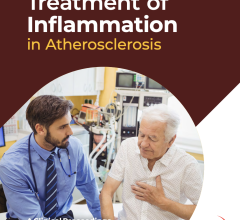
The replacement of regular salt with a salt substitute can reduce incidences of hypertension, or high blood pressure, in older adults without increasing their risk of low blood pressure episodes, according to a study published in the Feb. 2024 issue of the Journal of the American College of Cardiology (JACC). Image courtesy: Getty Images
February 14, 2024 — The replacement of regular salt with a salt substitute can reduce incidences of hypertension, or high blood pressure, in older adults without increasing their risk of low blood pressure episodes, according to a recent study published in the Feb. 2024 Journal of the American College of Cardiology (JACC), an American College of Cardiology (ACC) journal. Researchers from Peking University Clinical Research Institute in Beijing, China found that people who used a salt substitute had a 40% lower incidence and likelihood of experiencing hypertension compared to those who used regular salt.
In the study, “Effect of a Salt Substitute on Incidence of Hypertension and Hypotension Among Normotensive Adults,” looked at salt substitutes as a better solution to control and maintain healthy blood pressure than reducing salt alone, recognizing that, according to the World Health Organization (WHO), hypertension is the leading risk factor for cardiovascular disease and mortality, affecting over 1.4 billion adults and results in 10.8 million deaths per year worldwide. As noted by ACC in its study overview, while previous studies prove that reducing salt intake can prevent or delay new-onset hypertension, long-term salt reduction and avoidance can be challenging.
“Adults frequently fall into the trap of consuming excess salt through easily accessible and budget-friendly processed foods,” said Yangfeng Wu, MD, PhD, lead author of the study and Executive Director of Peking University Clinical Research Institute in Beijing, China. Wu added, “It's crucial to recognize the impact of our dietary choices on heart health and increase the public’s awareness of lower-sodium options."
Researchers in this study evaluated the impact of sodium reduction strategies on blood pressure in elderly adults residing in care facilities in China, according to a Feb. 12 ACC study summary published online.
DECIDE-Salt Study Details
The DECIDE-Salt study included 611 participants 55 years or older from 48 care facilities split into two groups: 24 facilities (313 participants) replacing usual salt with the salt substitute and 24 facilities (298 participants) continuing the use of usual salt. All participants had blood pressure <140/90mmHg and were not using anti-hypertension medications at baseline. The primary outcome was participants who had incident hypertension, initiated anti-hypertension medications or developed major cardiovascular adverse events during follow-up.
At two years, the incidence of hypertension was 11.7 per 100 people-years in participants with salt substitute and 24.3 per 100 people-years in participants with regular salt. People using the salt substitute were 40% less likely to develop hypertension compared to those using regular salt. Furthermore, the salt substitutes did not cause hypotension, which can be a common issue in older adults.
“Our results showcase an exciting breakthrough in maintaining blood pressure that offers a way for people to safeguard their health and minimize the potential for cardiovascular risks, all while being able to enjoy the perks of adding delicious flavor to their favorite meals,” Wu said. He further noted, “Considering its blood pressure – lowering effect, proven in previous studies, the salt substitute shows beneficial to all people, either hypertensive or normotensive, thus a desirable population strategy for prevention and control of hypertension and cardiovascular disease.”
Limitations of the study include that it is a post-hoc analysis, study outcomes were not pre-specified and there was a loss of follow-up visits in many patients. Analyses indicated that these missing values were at random, and multiple sensitivity analyses supports the robustness of the results.
In an accompanying editorial comment, Rik Olde Engberink, MD, PhD, researcher, nephrologist and clinical pharmacologist at Amsterdam University Medical Center’s VUMC Department of Internal Medicine, said the study provides an attractive alternative to the failing strategy to reduce the intake of salt worldwide, but questions and effort remain.
“In the DECIDE-Salt trial, the salt substitute was given to the kitchen staff, and the facilities were not allowed to provide externally sourced food more than once per week,” Olde Engberink said. He added, “This approach potentially has a greater impact on blood pressure outcomes, and for this reason, salt substitutes should be adopted early in the food chain by the food industry so that the sodium-potassium ratio of processed foods will improve.”
More information: www.acc.org


 February 04, 2026
February 04, 2026 









